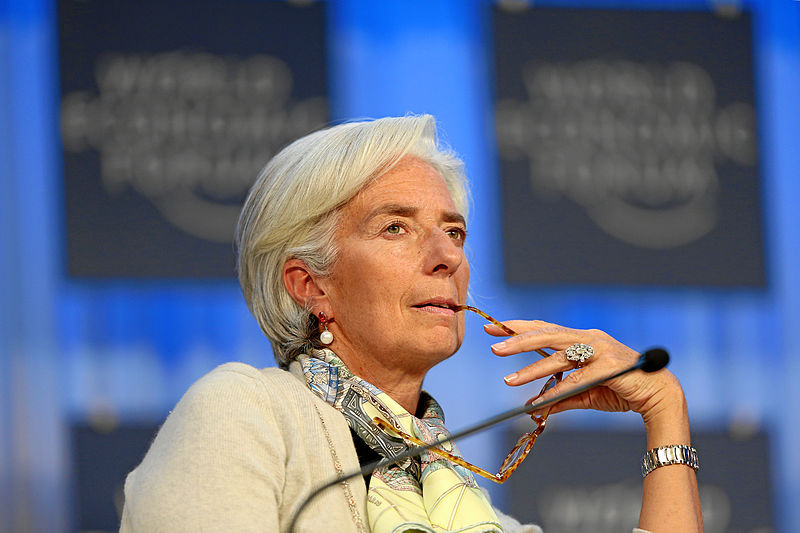 EMERGING TECH
EMERGING TECH
 EMERGING TECH
EMERGING TECH
 EMERGING TECH
EMERGING TECH
On the same day the head of the International Monetary Fund called for a crackdown on cryptocurrencies, the Winklevoss twins have proposed a new body to regulate the industry.
IMF head Christine Lagarde (pictured) called for the cryptocrackdown in a blog post Tuesday, saying that cryptocurrencies are dangerous, a risk to global financial stability, as well as playing the card used by many before her: Cryptocurrencies facilitate terrorism and money laundering. For the hat trick of cryptoscares, she also detailed how cryptocurrencies are used for the sale of drugs, referencing the now-defunct dark web site Alphabay.
Lagarde went on to suggest that blockchain technology could be used to control cryptocurrencies by facilitating information sharing between market participants and regulators.
“Those who have a shared interest in maintaining safe online transactions need to be able to communicate seamlessly,” Lagarde said. “The technology that enables instant global transactions could be used to create registries of standard, verified, customer information along with digital signatures. Better use of data by governments can also help free up resources for priority needs and reduce tax evasion, including evasion related to cross-border transactions.”
Back across the Atlantic, the Winklevoss twins, who are still best-known for suing Facebook Inc. founder Mark Zuckerberg for allegedly stealing their social networking idea before settling the case, have submitted a proposal to create the “Virtual Commodity Association,” a self-regulatory organization designed to police digital-currency markets and custodians.
“The promise of virtual commodities and their impact on the future will be profound — but individuals and institutions need to feel safe and secure when transacting,” the twins said in a blog post. “We believe a thoughtful SRO [self-regulatory organization] framework that provides a virtual commodity regulatory program for the virtual commodity industry is the next logical step in the maturation of this market.”
The Winklevii themselves have long been fans of cryptocurrency, having launched the Gemini bitcoin exchange in 2015 with offices in the U.S. as well as the U.K.
The idea of a self-regulatory organization does have some merit, as The Next Web notes “regulators including the CFTC and U.S. Securities and Exchange Commission heavily rely on self-regulatory organizations, or SROs, to help them monitor trading in everything from obscure swaps to shares in the biggest U.S. companies.”
THANK YOU